Apollo astronauts who ventured outside of the protective confines of their pressurized capsules faced a number of hazards, among them: exposure to cosmic debris, solar radiation, and surface temperatures that widely varied. The suit also needed to accommodate a wide range of motion to allow the duties of the missions to be successfully accomplished.
DE
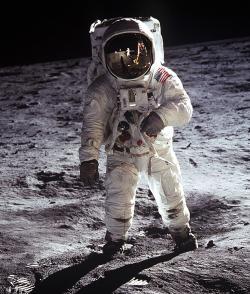
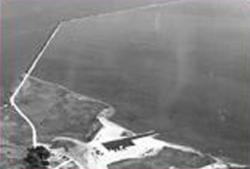
Delaware 19709New CastleState: DECountry: USAWebsite: http://www.asce.org/Project/New-Castle-Ice-Harbor/Creator: Delafield, Richard
In 1794, the Delaware legislature authorized a lottery to fund the erection of ice piers in the harbor at New Castle. The ice harbor was designed to protect anchored ships from storms and ice. At the time, New Castle served as the principal winter port for ships from the Port of Philadelphia because ice on the Delaware River posed such a serious hazard to the wooden-hulled vessels. The harbor was the first of its type on the river and the last one to be maintained as the need for them declined. It served as a model for the other four harbors constructed in the area.

The Chesapeake & Delaware Canal is the only canal built in 19th-century America that still operates today as a major shipping route. Connecting the Port of Baltimore and Upper Chesapeake Bay with the mouth of the Delaware River and the Port of Philadelphia, the canal was one of the first civil engineering projects proposed in the New World and one of the most difficult to carry out. Although only 14 miles long, the canal's original cost made it one of the most expensive canals ever built in America.

Innovations
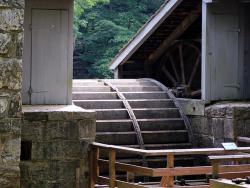

The Chesapeake & Delaware Canal is the only canal built in 19th-century America that still operates today as a major shipping route. Connecting the Port of Baltimore and Upper Chesapeake Bay with the mouth of the Delaware River and the Port of Philadelphia, the canal was one of the first…
Read More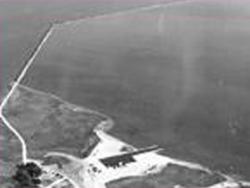
In 1794, the Delaware legislature authorized a lottery to fund the erection of ice piers in the harbor at New Castle. The ice harbor was designed to protect anchored ships from storms and ice. At the time, New Castle served as the principal winter port for ships from the Port of Philadelphia…
Read More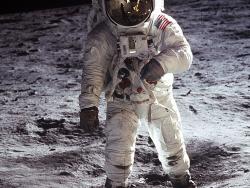
Apollo astronauts who ventured outside of the protective confines of their pressurized capsules faced a number of hazards, among them: exposure to cosmic debris, solar radiation, and surface temperatures that widely varied. The suit also needed to accommodate a wide range of motion to allow the…
Read More


